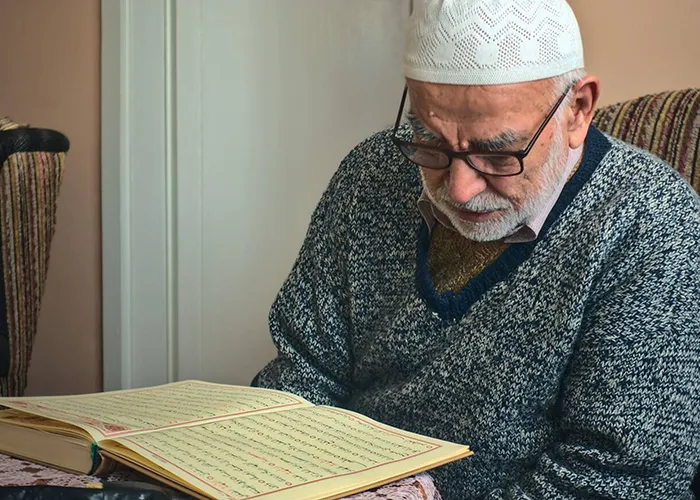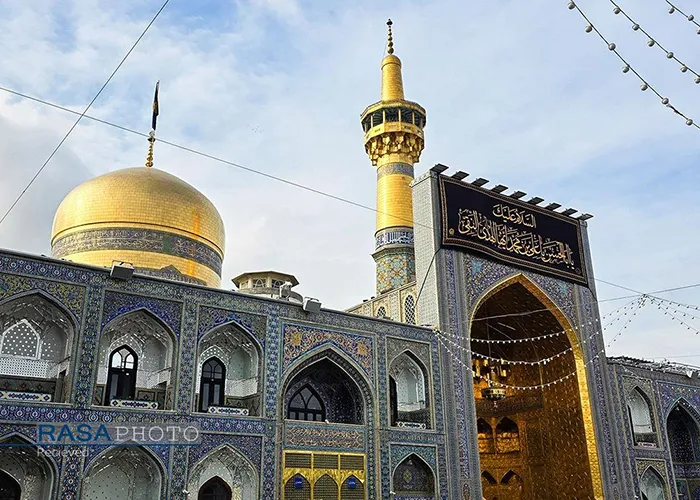Ayah Of The Week – Volume01 Issue24
The Right to Education: A Fundamental Human Right in Light of the Quran and the Universal Declaration of Human Rights
Introduction
On 10 December 1948, the Universal Declaration of Human Rights (UDHR) was proclaimed by the United Nations General Assembly in Paris. Article 26 of the UDHR declares:
“Everyone has the right to education.”
This declaration aligns closely with the teachings of the Quran, which places a profound emphasis on learning, education, and human development. The Quran is not only a book of guidance but also a divine invitation to continuous learning and intellectual growth. The first verses revealed to the Prophet Muhammad (PBUH) highlight the importance of education and the process of learning:
اقْرَأْ بِاسْمِ رَبِّكَ الَّذِي خَلَقَ ﴿۱﴾ خَلَقَ الْإِنْسَانَ مِنْ عَلَقٍ ﴿۲﴾ اقْرَأْ وَرَبُّكَ الْأَكْرَمُ ﴿۳﴾ الَّذِي عَلَّمَ بِالْقَلَمِ ﴿۴﴾ عَلَّمَ الْإِنْسَانَ مَا لَمْ يَعْلَمْ ﴿۵﴾
“Read in the name of your Lord who created, (1) Created man from a clinging substance. (2) Read, and your Lord is the most Generous— (3) Who taught by the pen, (4) Taught man that which he knew not. (5)” (Surah Al-‘Alaq, Verses 1–5)
These verses and many others in the Holy Quran establish education as a fundamental and inherent right of every individual. They emphasise that learning is a divine gift and an essential element of human dignity. As we commemorate 10 December, it is important to reflect on how the Quran advocates for human rights, particularly the right to education, as one of the foundational rights for human flourishing.
Some of the educational messages of these beautiful verses are outlined here.
Educational Messages of Verses 1-5 of Surah Al-‘Alaq for Teenagers and Youth
- Prioritise Learning Over Digital and Virtual Distractions
In a world dominated by social media and the internet, many young people become ensnared in distractions that hinder intellectual growth. The Quranic command “Read in the name of your Lord” reminds youth to prioritise education and knowledge over fleeting distractionsimposed to them by the virtual world. By dedicating time to meaningful learning, they not only fulfil a divine command but also contribute to their personal development and societal progress.
- Learn with Purpose and Intention
The phrase “Read in the name of your Lord” teaches that education should not be pursued aimlessly. Instead, it should be guided by the intention to serve Allah SWT and humanity. When youth seek knowledge with the goal of bettering themselves and serving others, their learning gains a higher purpose and aligns with the divine will.
- Embrace Writing as a Tool for Learning
The verse “Who taught by the pen” highlights the divine significance of writing as a foundational tool for learning and growth. Writing is more than just recording information—it is a means of clarifying thoughts, fostering critical thinking, and preserving knowledge for future generations. In the modern age, where fleeting digital interactions dominate, the practice of deliberate writing helps anchor our understanding and encourages deeper reflection. Through journaling, note-taking, or structured essays, individuals can enhance their comprehension and create a lasting record of their intellectual and spiritual journeys.
Moreover, writing is a communal asset that bridges generations and cultures. The Quran itself, preserved in written form, exemplifies the transformative power of recorded knowledge. Today, while the “pen” may have evolved into keyboards and digital tools, its purpose remains the same: to document, inspire, and educate. By embracing writing in its various forms, we honour this divine gift and contribute to building informed, thoughtful, and reflective societies that value the enduring impact of learning and communication.
Educational Messages of Verses 1-5 of Surah Al-‘Alaq for Parents
- Invest in Your Children’s Education
Parents have a sacred responsibility to provide their children with the means to acquire education. The Quran’s emphasis on learning urges parents to prioritise educational expenses in their household budgets. Supporting their children’s intellectual growth not only secures their future but also honours the divine directive to pursue knowledge.
- Focus on Religious Education
In addition to general education, parents must ensure their children receive a strong foundation in religious learning. The Quran’s declaration that “He taught man that which he knew not” serves as a reminder that true guidance comes from Allah SWT. Parents should actively invest in teaching their children about their faith, helping them to balance worldly success with spiritual fulfilment.
Educational Messages of Verses 1-5 of Surah Al-‘Alaq for Imams and Cultural Centres
- Allah SWT as the Ultimate Teacher
The verse “He taught man that which he knew not” reminds us that Allah SWT is the primary source of all knowledge. Imams and cultural centres should emphasise this truth in their teachings, encouraging individuals to seek wisdom from the Quran and align their actions with divine guidance. By fostering this connection to Allah SWT’s word, they can help their communities navigate life’s challenges with clarity and purpose.
- Fostering a Culture of Lifelong Learning
The Quranic verse “Read in the name of your Lord who created” highlights that the pursuit of knowledge is a lifelong obligation, not limited by age or circumstance. Imams and cultural centres should actively promote the value of continuous learning among their communities, emphasising that education is not just for formal schooling but a perpetual journey to better oneself spiritually, intellectually, and socially.
By organising classes, workshops, and discussions on a variety of subjects—including religious education, ethical development, and contemporary issues—cultural centres can create an environment where learning is embraced at every stage of life. This ongoing pursuit of knowledge aligns with the Quranic principle that Allah SWT “taught man that which he knew not,” emphasising that growth and learning are divine aspirations for humanity.
Final Thoughts
The Quranic emphasis on education as a divine right reflects an eternal and comprehensive guidance that transcends human declarations, such as the Universal Declaration of Human Rights (UDHR). While Article 26 of the UDHR recognises education as a fundamental right, the Quran—revealed over 1400 years ago—established this principle with divine wisdom, presenting learning as both a sacred duty and an essential aspect of human dignity. The verses of Surah Al-‘Alaq and other Quranic teachings elevate education beyond a worldly right, framing it as a spiritual and intellectual obligation that forms the foundation for human growth and societal harmony.
Imam Ali (as) has stated: اَلْعِلْمُ أَصْلُ كُلِّ خَيْرٍ “Knowledge is the root of all goodness.” This sentiment reflects the Quran’s insistence that education is the key to human flourishing. The teachings of the Quran and the Ahlul Bayt illuminate the path for humanity, guiding us toward a life of balance, enlightenment, and righteousness. Let us honour these teachings by prioritising education and upholding it as a universal human right for all.
editor's pick
news via inbox
Subscribe to the newsletter.




